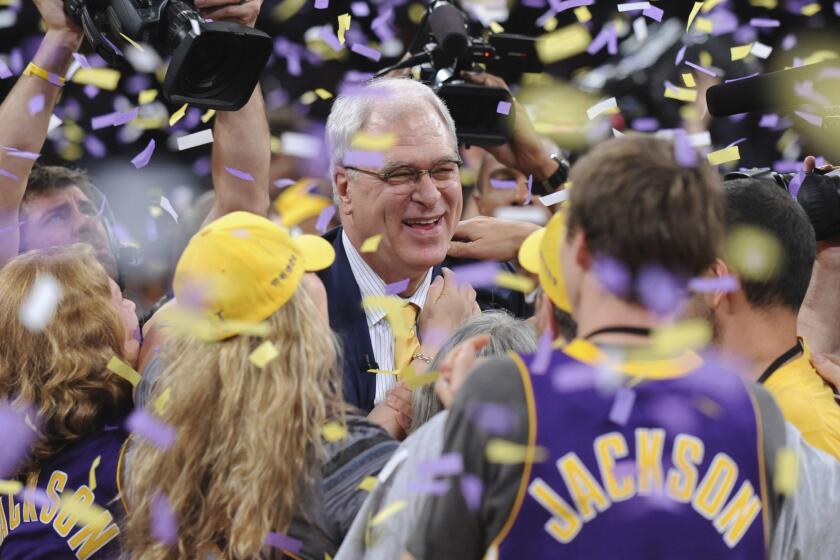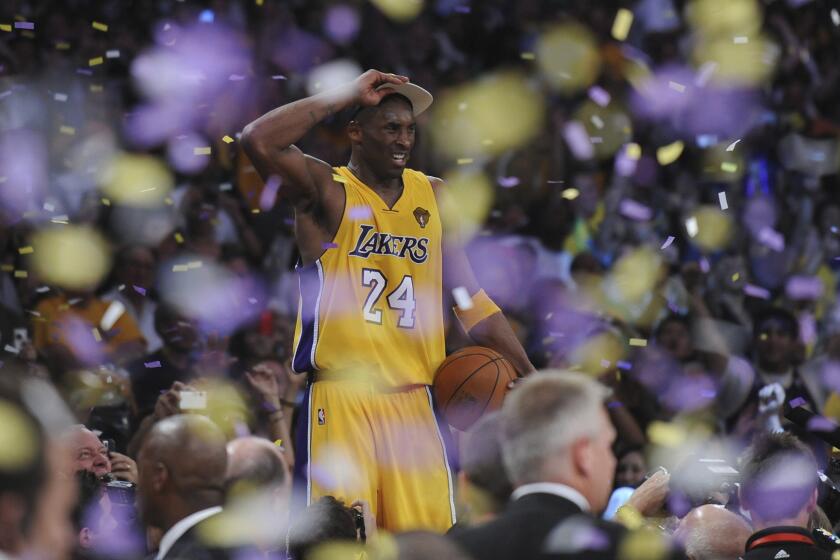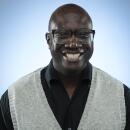How the Lakers’ last dynasty ended in a total dismantling
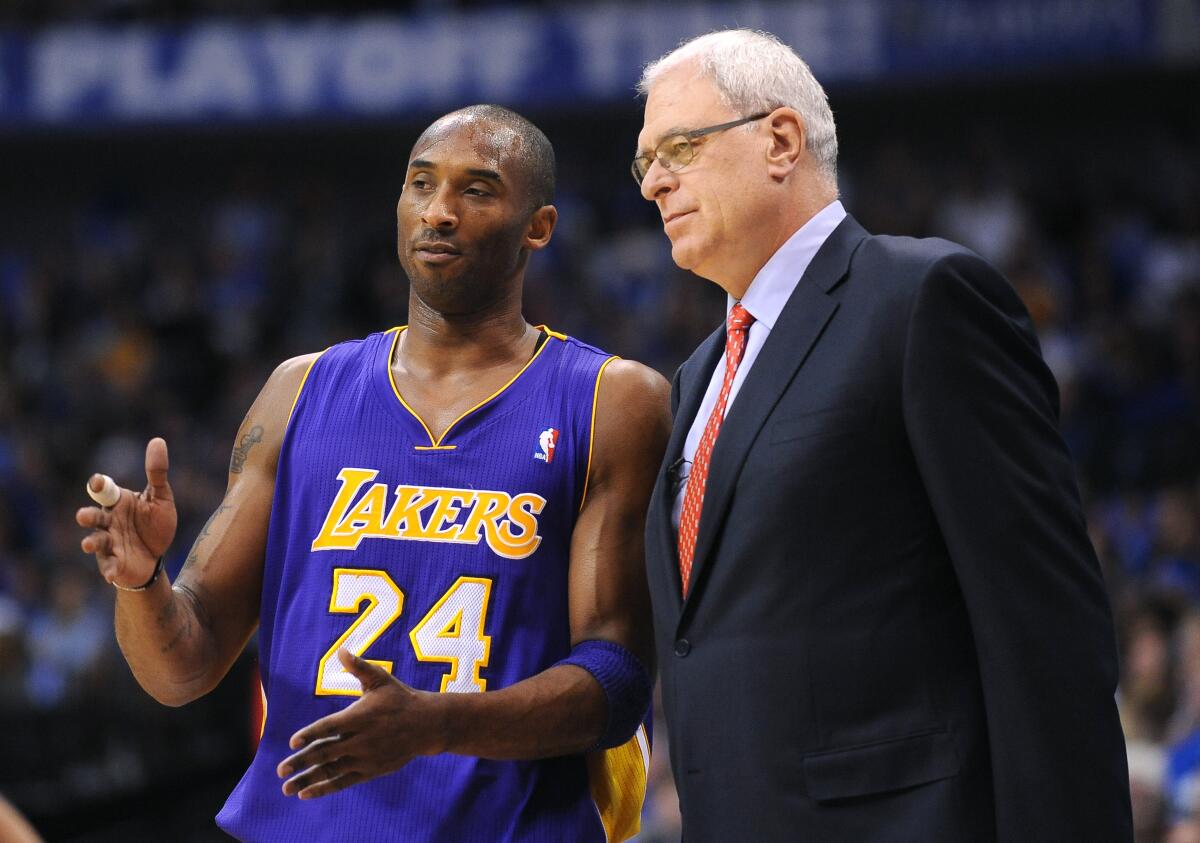
- Share via
Eighth in a series about the Lakers’ final title run.
When the Lakers’ last title run ended, Phil Jackson wasn’t sure if he’d made the right decision in coming back.
“I remember him saying something to me after the game like, ‘I probably shouldn’t have come back. I should have ended my career on a championship,’” recalled Mitch Kupchak, who was the Lakers general manager. “Then he looked at me and he said, ‘But I had to.’
“And he did. You gotta try to win three in a row.”
From 2008 to 2010, the Lakers went to the NBA Finals in three consecutive seasons, winning two titles. As the celebration in the summer of 2010 waned, they felt a certainty about their future that was bolstered by Jackson’s decision to return as coach in July to chase a three-peat and his 12th championship.
Instead ...
“Things have a beginning and things have an end,” said Pau Gasol, one of the team’s stars. “Nothing last forever, really.”
A series of articles on the Lakers’ 2009-10 season and how the team defeated the Boston Celtics in seven games during the NBA Finals that season.
In the summer of 2011, the Lakers didn’t make it past the second round and they haven’t done it since. They went six consecutive seasons without making the playoffs — the worst drought in franchise history — before this year’s group appeared to have a real opportunity to chase another championship and recapture the magic.
Because of their deep playoff runs in reaching the Finals three consecutive years, those Lakers teams played nearly an entire extra season worth of games. And Jackson had been dealing with health issues that would extend into the next season.
“I think physically exhausted, but I think more than anything, emotionally, just drained,” former guard Derek Fisher said. “A lot of changes and things that we had gone through as a group. You start adding personalities in, you start taking certain personalities out. Phil just not being able to be fully present, which is the one thing he really taught us when he arrived in L.A. To reach a certain level of greatness and excellence, you have to be fully present in each singular moment and he wasn’t able to be that for us.”
The NBA landscape in the summer of 2010 was dominated by LeBron James’ free agency. And while the Lakers would have loved to land him, it wasn’t a pressing matter. Near the start of July, Jackson reconfirmed his commitment for one more season.
The roster changed. Role players Jordan Farmar, D.J. Mbenga, Adam Morrison and Josh Powell left, but the key pieces to the Lakers’ championship would return.
Fisher returned, but after a free-agency process that made him feel unwanted at times.
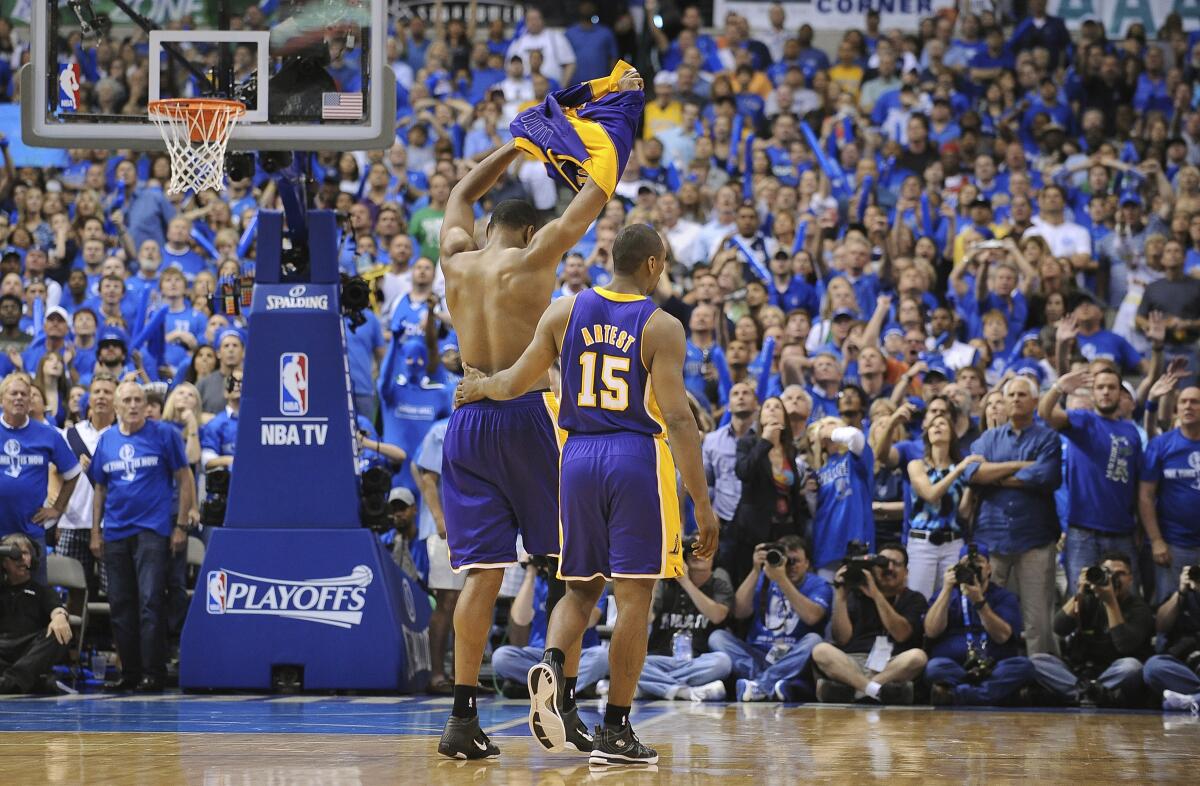
Everything seemed fine early next season. The Lakers started 13-2, looking every bit the defending champions. They won 57 games, the same as they had the season before, and beat the Dallas Mavericks two of three times during the regular season.
But in the conference semifinals the Lakers collided with a Mavericks team on a mission and were swept in four games.
That fourth game was ugly too. Lamar Odom and Andrew Bynum got ejected. The 122-86 loss was their second-worst playoff loss in franchise history — second only to their elimination loss to the Boston Celtics in the 2008 Finals.
It was the first time Jackson had been swept out of a series — an unfitting end to his coaching career.
The Lakers took some solace in the fact that the Mavericks went on to win the championship, beating James’ Miami Heat.
“Had they not done that, then you’re kind of left with the feeling, ‘What the …?’” said Brian Shaw, an assistant coach for that team. “But they caught lightning in a bottle at the right time. … We got to the playoffs and they just got hot. They just blew through. We didn’t have an answer for them.”
The Lakers were a favorite to win their first NBA title since 2010 when the coronavirus pandemic stopped the season. A look at their last championship run.
Said Gasol: “We were already in not a great place and I think Dallas just smelled blood and went for it.”
It was a lesson in how dramatically things can change. The next season brought the failed attempt to trade for Chris Paul and the sore feelings that came with that. Then the ill-fated season with Dwight Howard and Steve Nash in 2012-13, which ended with Bryant suffering a torn left Achilles tendon.
Even signing James in 2018 did not lead to a return to the playoffs. The Lakers were on their way this season, however, when James was given another star in Anthony Davis, the two were surrounded by seasoned veterans and the group rose to be among the NBA’s elite.
“They care about the big picture,” Fisher said. “They care about being one of those great Lakers teams. … I just feel like the Lakers group is very closely connected and that’s what our groups were.”
This season’s Lakers have talked about wanting the chance to finish what they started amid a season interrupted by the COVID-19 pandemic. Many know from experience how difficult and rare championship journeys are. If they forget, they need only to mine their franchise’s recent past.
More to Read
All things Lakers, all the time.
Get all the Lakers news you need in Dan Woike's weekly newsletter.
You may occasionally receive promotional content from the Los Angeles Times.
